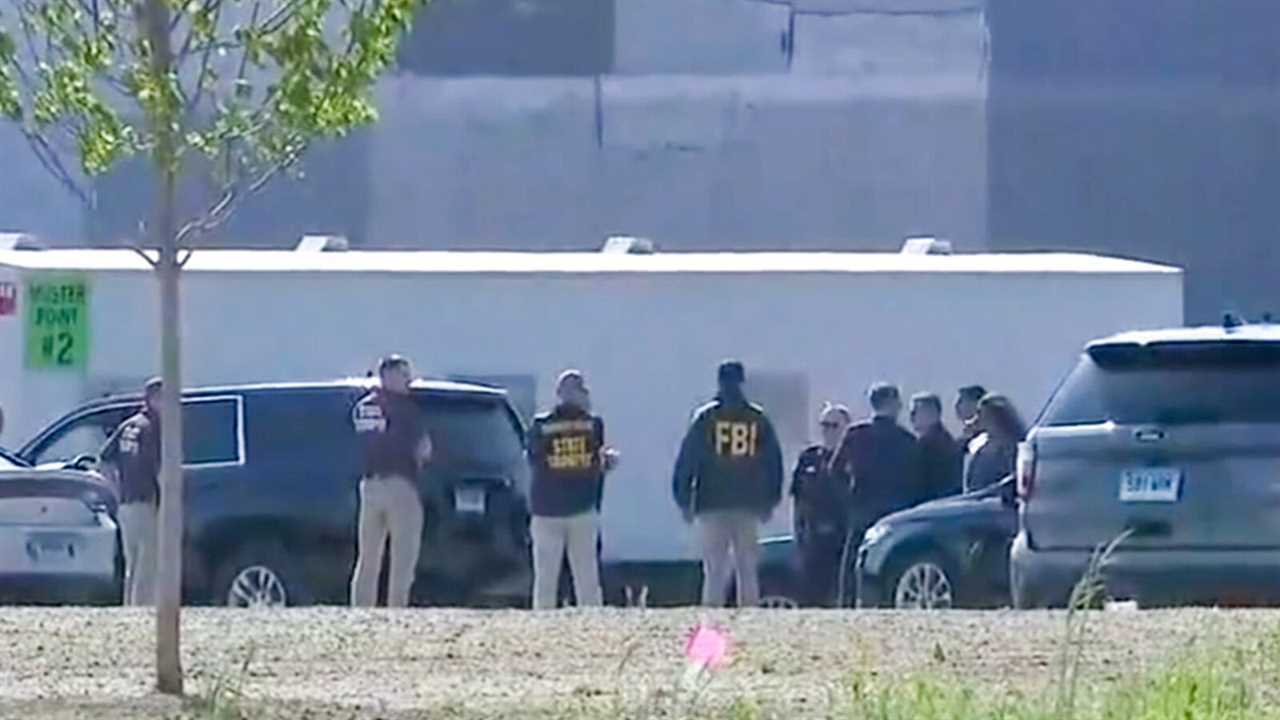
Amazon said it had temporarily stopped construction of a new fulfillment center in Windsor, Conn., after seven ropes that appeared to be nooses were found on the site since April 27.
The Windsor Police Department said it was investigating what it called “potential hate crime incidents” with the Connecticut State Police and the F.B.I.
Amazon said it had shut down construction on the site until at least Monday while new security measures were being put in place. It said a $100,000 reward had been offered; Amazon said that it had contributed $50,000 and that construction companies and subcontractors working on the site had contributed the other $50,000.
“We continue to be deeply disturbed by the incidents at this construction site,” Brad Griggs, an Amazon representative, said at a news conference on Thursday with Black elected officials and members of the N.A.A.C.P. “Hate, racism and discrimination have no place in our society and certainly are not tolerated in any Amazon workplace.”
Scot Esdaile, the president of the Connecticut State Conference of the N.A.A.C.P., said that the group had met with law enforcement officials and community leaders and that “we still haven’t felt that the situation has been dealt with adequately.”
He said the group was “very, very disappointed” that the N.A.A.C.P. had not been allowed on the site to make sure construction workers were safe. He said that the N.A.A.C.P. had also been asking how many Black vendors and workers were on the site and that “many of these questions have not been answered.”
“The N.A.A.C.P. will continue to find out who is exactly on this site, and whose lives have been threatened and have all measures been taken care of, to make sure that their public safety is secure,” he said at the news conference.
State and local officials described fear and outrage in Windsor, a town of about 28,000 people north of Hartford.
“We want to see someone apprehended,” Nuchette Black-Burke, a member of the Windsor Town Council, said at the news conference. “If we need to get a sit-in, a protest, whatever we need to do, we’re going to continue to do it until the folks here realize it’s not acceptable. It’s a hate crime.”
According to the police, the first noose was discovered on April 27, hanging from a steel beam on the second floor of the building, in an area that was not monitored by surveillance cameras and was accessible to hundreds of employees from various companies.
The police said that, according to the construction supervisor, the site safety team had documented the episode and discarded the noose.
Two days later, on April 29, detectives were notified that five “additional ropes that could be interpreted as nooses” were found in various places throughout the building, the police said. The ropes were collected as evidence and were to undergo testing, the police said, adding that no other messages or markings had been found.
On Wednesday, the Windsor police said that officers working on the site had been made aware of a seventh rope that “could be interpreted as a noose” hanging from a beam. Detectives collected the rope as evidence and planned to send it to the state lab for analysis, the police said.
“The Town of Windsor prides itself in being an inclusive and diverse community,” the police said. “These incidents do not represent the character of our community. We stand united in condemning these acts that are hateful and intolerant.”
Cases of racism on construction sites are not uncommon, according to Construction Dive, a news site focused on the construction and building industry, which said that 65 percent of the readers it surveyed last year had witnessed racist incidents on job sites. Those incidents included nooses, graffiti and slurs. Seventy-seven percent of readers said that nothing had been done to address the incidents.
The F.B.I. said it was lending resources and support to the Windsor police.
“The implications of a hanging noose anywhere are unacceptable and will always generate the appropriate investigative response,” David Sundberg, the special agent in charge of the New Haven field office, said in a statement.
Carlos Best, an ironworker who was at the news conference, said he had seen Confederate flags on hats and on the backs of cars and had heard “racial remarks” on the construction site. He said it was not the only job site where he had seen and heard such things, but “it’s kept quiet because some guys just want to get a paycheck and go home.”
“But, personally, on this job here, I’ve seen a lot of racism,” Mr. Best said. “I would like to say to the person that’s doing it: Could you please stop? Stop what you’re doing and grow a conscience and think about other people.”






